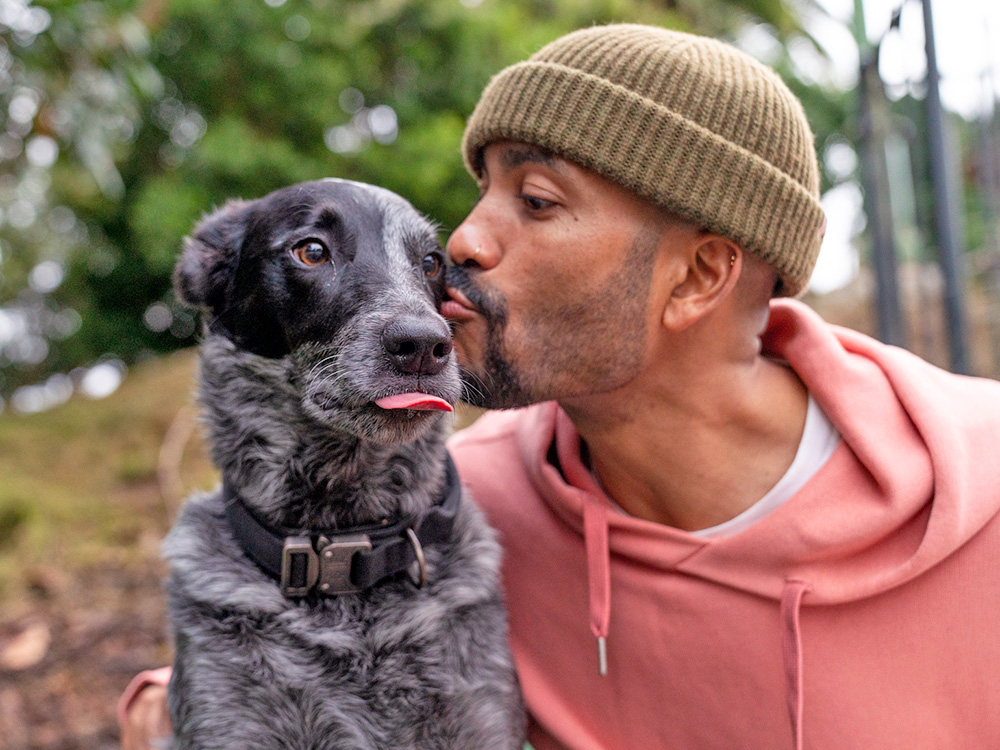Younger People Are More Likely to View Their Pets as Children, New Study Finds · Kinship Leave a comment
It was true when Bob Dylan stated it in 1964, and it’s true when Timothee-Chalamet-as-Bob-Dylanopens in a brand new tab says it in 2024: the occasions they’re a-changin’. Generational divides appear to be popping up in all places we glance (keep in mind the nice Gen Z Center Half vs. Millennial Facet Halfopens in a brand new tab debate of 2021?) — and now, there’s yet one more signal of the altering tide: attitudes towards pet parenting.
A brand new examineopens in a brand new tab of 790 pet dad and mom discovered that youthful ones usually tend to see their pets as their youngsters and “extra essential than people,” whereas older pet dad and mom usually tend to view their pets as companion animals and associates.
The examine
Researchers at Eötvös Loránd College in Hungary surveyed pet dad and mom to learn the way they considered their relationships with their canines and what their canines’ roles are of their lives. They discovered their respondents fell into three several types of canine guardians: a “companion” group, who noticed their pets as companion animals relatively than youngsters; “canine dad and mom,” who considered their pets as youngsters; and a “twin standing” group, who considered their canines as a mix of roles.
Get (completely free) offers for meals, treats, equipment, tech, and means extra pet parenting must-haves.
Get Offers
opens in a brand new tab
One essential caveat: Whereas the three teams noticed their relationships with their canines in another way, every group had loads of love for his or her pups. All of the contributors “declared benefiting vastly from the unconditional love and bodily contact offered by their canines,” wrote lead creator Laura Gillet. All of them liked petting their canines, all of them discovered the sight of their canines gratifying, and so they all averted dangerous instruments like electrical collars.
The researchers discovered that older pet dad and mom usually tend to see their canines as companion animals, and so they have been much less prone to agree that their canines have been extra essential than people. Younger folks, then again, have been extra prone to view their canine as a baby and “extra essential than any human.”
How do totally different attitudes towards pet parenting have an effect on the canines?
The attitudes pet dad and mom maintain towards their canines manifest in a number of methods. With regards to coaching, pet dad and mom who noticed their canines as a baby and “extra essential than any human” have been extra prone to present inconsistency in educating their canine — for instance, they have been much less prone to reward a particular conduct each time. “As they have been additionally youthful, one speculation is that these house owners have been extra prone to be first-time house owners,” Gillet wrote.
Twin-status pet dad and mom assigned their pets an assistant or guard canine position, and so they have been extra prone to see their pets as essential to their security. Since their canines have been extra prone to be saved for working causes, these pet dad and mom reported placing effort into coaching and utilizing constructive reinforcement strategies.
Individuals within the “canine dad and mom” group have been extra prone to have indoor-only canines. They have been additionally extra prone to really feel unsafe with their canines off leash, which can point out that they’re extra overprotective. That stated, their pups weren’t discovered to have elevated charges of concern or separation nervousness.
Apparently, the dog-parent profiles additionally didn’t correlate with the quantity of lively time spent with their canine strolling or enjoying — so although the pet dad and mom of companion canines spend much less time with their canines total, they “appeared to take a position simply as a lot time actively caring for his or her canines,” Gillet wrote.
In reality, when it got here right down to it, there have been no vital variations in pet conduct or animal welfare between the three teams. The most typical behavioral points — leaping up, chasing animals, territoriality, and overexcitement — have been constant throughout pet parenting types. In different phrases, so long as your pet’s receiving tons of affection, exercise, and no bodily punishment, there’s no proper or mistaken means to consider your relationship. We will all agree: youngsters, associates, assistants — no matter we name them, we’re fortunate to have them.


